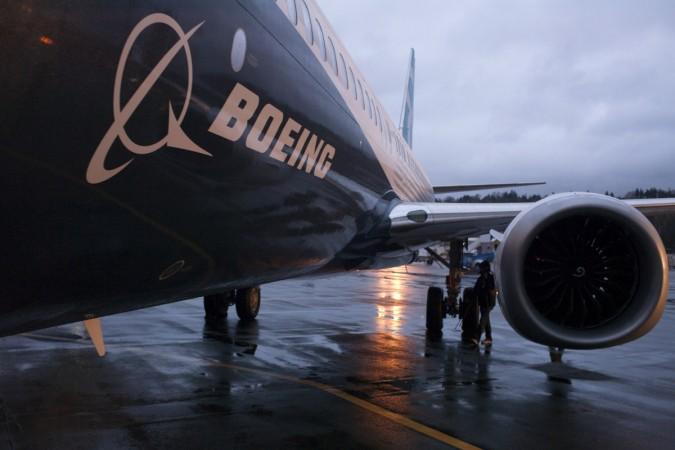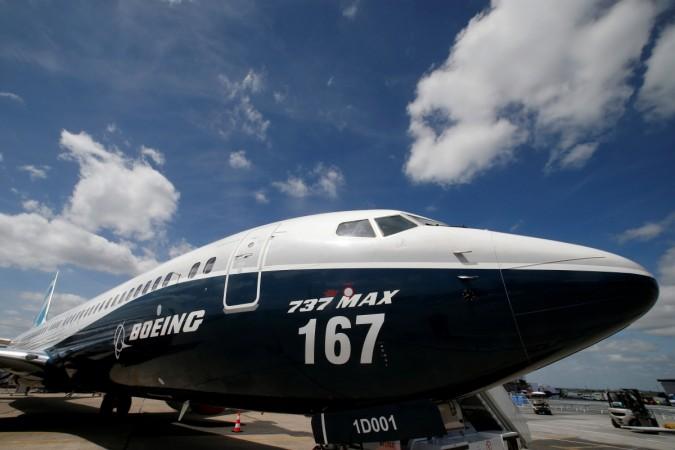During the approval process for Boeing's 737 MAX planes in India in 2017, company executives used words such as "fools" and "stupid" for the Indian aviation regulator Directorate General of Civil Aviation (DGCA), according to internal documents released by the company.

In one of the communications, an employee said the plane was "designed by clowns", the BBC reported on Friday. The plane maker described the communications as "completely unacceptable".
Boeing 737 Max was grounded in March 2019 post two crashes
In early 2019, regulators across the world banned 737 MAX planes after two fatal crashes killed 346 people. The DGCA had also ordered grounding of these planes in March last year. The 737 Max was grounded in March 2019 after the crashes in Indonesia and Ethiopia.
The latest batch of internal Boeing documents were provided to the US aviation regulator Federal Aviation Administration (FAA) and the US Congress last month and released on Thursday.
In one of the conversations from 2017, a Boeing executive is recorded as saying: "The DCGA in India is apparently even stupider, if that's a word. I am drinking obviously." In another conversation, a Boeing executive says the following about the DGCA: "I just Jedi mind-tricked this (these) fools."
SpiceJet is the only Indian carrier with 737 MAX aircraft in its fleet, and it grounded 13 of these planes in March last year after the crashes.
'Boeing 737 Max designed by clowns'
In one of the communications, an employee said the plane was "designed by clowns", the BBC reported on Friday. The plane maker described the communications as "completely unacceptable". Boeing said it had released the hundreds of redacted messages as part of its commitment to transparency. The Federal Aviation Administration (FAA) and US Congress were given unredacted versions of the communications last month.
"These communications do not reflect the company we are and need to be, and they are completely unacceptable," Boeing said. One unnamed employee wrote in an exchange of instant messages in April 2017: "This airplane is designed by clowns who in turn are supervised by monkeys."

The documents, which have been published by a leading US media outlet, appear to show that Boeing rejected pilots being trained on simulators, which would have led to higher costs for the firm.
"I want to stress the importance of holding firm that there will not be any type of simulator training required to transition from NG to Max," Boeing's 737 chief technical pilot at the time, Mark Forkner, said in a March 2017 email.
"Boeing will not allow that to happen. We'll go face to face with any regulator who tries to make that a requirement." On Tuesday this week, Boeing reversed its position by recommending 737 Max simulator training for all pilots.
Another message dating from November 2015 appears to show that the company lobbied against the aviation regulator's calls for a certain aspect of simulator training. "We are going to push back very hard on this and will likely need support at the highest levels when it comes time for the final negotiation," the message said.
The documents also appear to show problems with the simulators being discussed. In February 2018, a Boeing worker asked a colleague: "Would you put your family on a Max simulator-trained aircraft? I wouldn't."

"No," came the reply. In other emails and instant messages, employees spoke of their frustration with the company's culture, complaining about the drive to find the cheapest suppliers and "impossible schedules".
"I don't know how to fix these things... it's systemic. It's culture. It's the fact we have a senior leadership team that understand very little about the business and yet are driving us to certain objectives," said an employee in an email dated June 2018. And in a May 2018 message, an unnamed Boeing employee said: "I still haven't been forgiven by God for the covering up I did last year."
Without citing what was covered up, the employee added: "Can't do it one more time, the pearly gates will be closed." US House transportation committee chairman Peter DeFazio - who has been investigating the 737 Max - said the communications "show a co-ordinated effort dating back to the earliest days of the 737 Max programme to conceal critical information from regulators and the public".
Senator Roger Wicker, who chairs the commerce committee leading the senate's probe into Boeing, said the documents "raise questions about the efficacy of FAA's oversight of the certification process". Boeing is redesigning the automated control system thought to have been the primary cause of the crashes. The company has temporarily stopped making the 737 Max. Last month, Boeing fired chief executive Dennis Muilenburg.

















